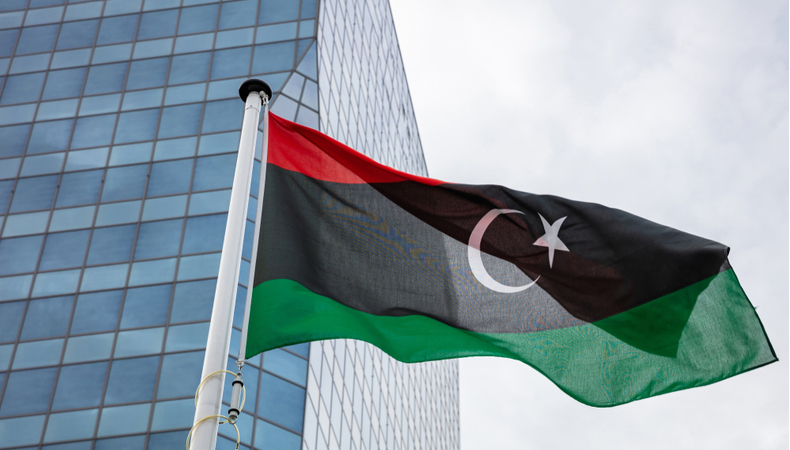48 Libyan Parliament members deny request for Russian forces’ intervention


On Tuesday, in the capital Tripoli, Prime Minister Abdul-Hamid Dbeibah, as Defense Minister, met with United States Commander in Africa (AFRICOM) General Stephen Townsend, and the Joint Military Committee (JMC 5 + 5). The meeting – which would also be attended by representatives of Russia and Turkey – addressed the issue of the removal of foreign mercenaries and foreign forces in the south, as well as joint efforts with neighboring countries.
The meeting, which was attended by US Ambassador and Special Envoy to Libya Richard Norland, discussed the fight against terrorism in southern Libya and agreed to continue strategic cooperation between Libya and the United States for the stability of Libya under a national government elected without foreign interference.
The US Embassy said that, after meeting with the AFRICOM delegation and the Joint Military 5 + 5 Commission, it remains committed to facilitating the full implementation of the October ceasefire agreement, the complete withdrawal of all forces and foreign fighters, as well as the full unification of the Libyan armed forces. “US military cooperation can help Libya improve its ability to remove unexploded ordnance, brought into Libya by foreign actors, and continue to recover from the conflict.” The embassy said in a tweet.
Russian Foreign Minister Sergey Lavrov confirmed the Russian presence in Libya during the United Nations General Assembly. On Friday, Lavrov also met with the head of Libya’s presidential council, Mohamed Younis Menfi, to discuss international aid to Libya, as well as the mercenary issue. “It is important for us to understand what the international community can do to help the Libyan people. We always count on the wisdom of your nation,” said the Russian minister. According to a statement released by the Russian Foreign Ministry, the parties affirmed the need to consolidate international aid to the Libyan transitional government.
Lavrov and Menfi underlined “the need to consolidate international support for Libya’s transitional authorities with the aim of further promoting the political process with the leading role of the United Nations, in accordance with Resolutions 2510 and 2570 of the Security Council of UN and the decisions taken during the international conference on Libya in Berlin,” reads the statement.
“A positive evaluation was given to the activities of the central government institutions for the transition period, created in the country in the spring of 2021 – the Presidency Council and the Government of national unity. Preparing and holding the presidential and parliamentary elections, scheduled for December 24, 2021, has been named the top priority of Libya’s transitional government,” Lavrov stressed.
The Russian side reaffirmed the importance of reaching a national consensus on key issues on the national agenda, taking into account the interests of all Libyans in order to maintain the country’s unity, sovereignty, and territorial integrity. In February 2021, the Libyan Prime Minister and the Presidential Council were elected by the Libyan Political Dialogue Forum (LPDF) in Geneva.
It is the first time that Russia has spoken openly about its mercenaries in Libya, which suggests the Kremlin’s intention to respect the will of the Libyans: mercenaries and foreign forces must leave Libya.




